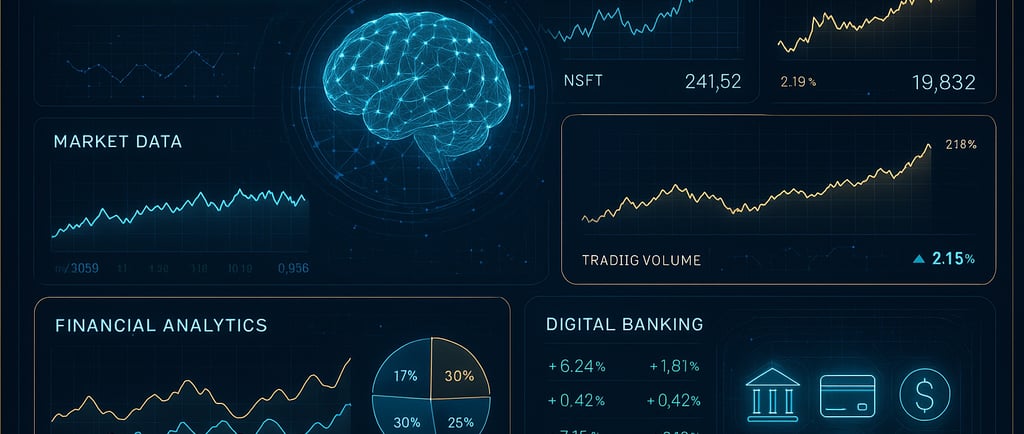The Transformation of the Financial Sector through Artificial Intelligence
See how artificial intelligence is transforming the financial sector—reducing costs, enhancing security, personalizing services, and accelerating real-time decision-making.
9/17/20251 min read


Innovation
Discover how AI transforms everyday life
Technology
Blog
suportevirtual@futurodigital.blog
© 2025. All rights reserved.
Other Pages
